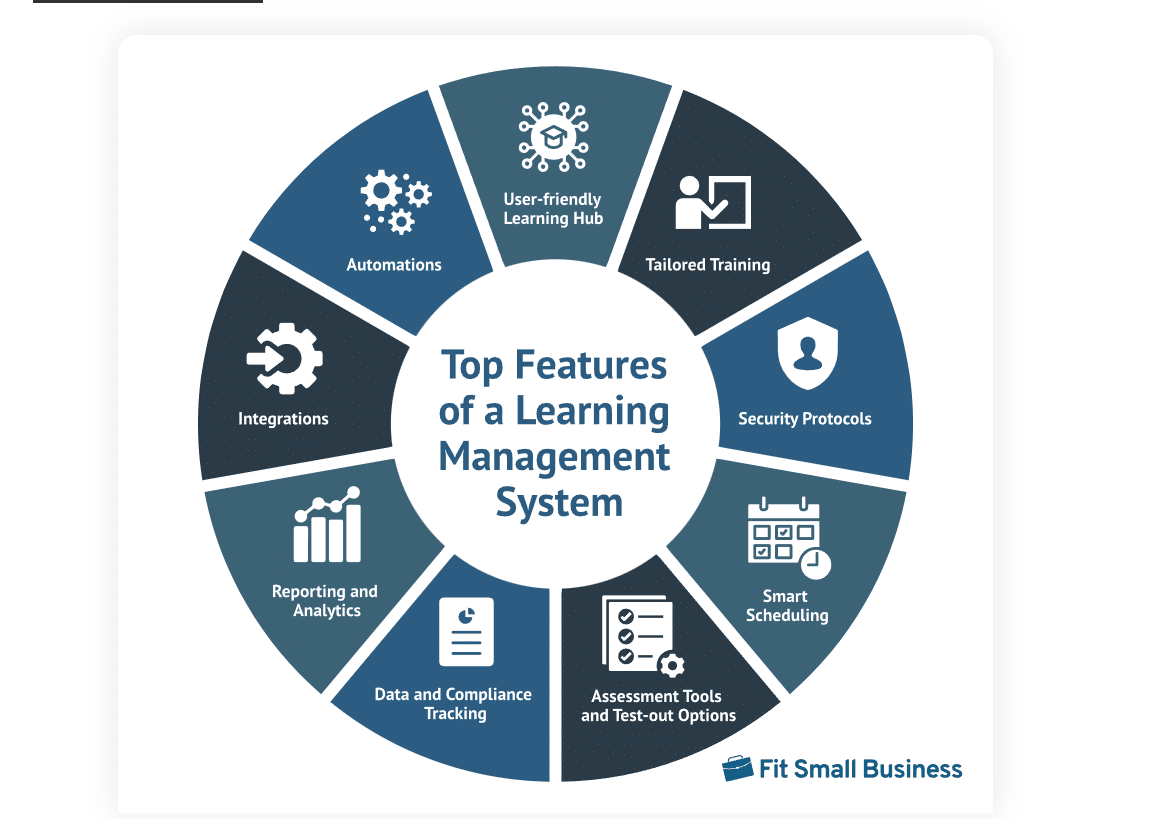Discover Canvas SG for Personalized Learning Journeys in Education
Discover Canvas SG for Personalized Learning Journeys in Education
Blog Article
The Ultimate Overview to Selecting the Right Learning Monitoring System
Choosing a suitable Knowing Management System (LMS) is an essential choice that can substantially affect educational efficiency and overall business goals. The subtleties of these considerations raise important inquiries that merit exploration, particularly as the landscape of digital knowing continues to advance.
Comprehending Discovering Management Systems
In the context of modern-day education and training, a Learning Administration System (LMS) functions as a crucial tool for providing, monitoring, and taking care of instructional content. An LMS promotes the organization of educational sources, enabling institutions and companies to produce a central hub for learning products. This system sustains different learning modalities, including on the internet training courses, blended discovering, and typical classroom setups.
LMS platforms are made to improve the discovering experience by giving an organized setting where students can access web content at their ease. They typically consist of functions such as analyses, progress monitoring, and coverage devices, which aid educators keep track of pupil performance and engagement. Additionally, LMSs can be personalized to fulfill the specific demands of various students and companies, enabling for tailored academic experiences.
The assimilation of an LMS into academic setups also advertises partnership among students and trainers, fostering a sense of community through conversation forums and team jobs. As organizations significantly identify the value of continuous learning and advancement, the duty of LMSs in facilitating reliable training services remains to expand, positioning them as essential possessions in the academic landscape.
Key Functions to Think About
When selecting a Learning Administration System (LMS), a number of key features necessitate careful consideration to make certain the platform aligns with educational purposes. User-friendliness is essential; an uncomplicated interface helps with simplicity of navigating for both students and managers.

Combination with existing devices is an additional significant facet; the LMS should flawlessly attach with tools like CRM systems, video conferencing systems, and content databases. canvas singapore. Mobile compatibility is significantly crucial, as learners usually favor access to sources on-the-go
Furthermore, modification options enable organizations to customize the LMS to their certain branding and pedagogical requirements. Finally, think about the platform's scalability, guaranteeing it can fit future growth and adjustments in customer need. Prioritizing these vital features will certainly help in choosing an LMS that properly enhances the finding out experience and satisfies institutional goals.
Prices Designs and Budgeting
Budgeting for an Understanding Administration System (LMS) calls for an extensive understanding of different rates designs to ensure a sustainable investment. Organizations needs to evaluate their particular demands and lasting objectives while taking into consideration the financial ramifications of each LMS alternative.

In enhancement to the base prices, companies ought to likewise think about possible extra prices such as implementation, maintenance, and support services. It is crucial to assess the total price of ownership over the LMS's lifecycle, consisting of possible upgrades or extra features that might be required as the company expands. By meticulously evaluating these pricing versions and linked expenses, companies can make enlightened choices that line up with their budgetary restrictions and instructional goals.
Evaluating User Experience
Assessing the efficiency of a Learning Administration System (LMS) surpasses monetary considerations; customer experience plays an essential role in the total success of the system. A well-designed interface can considerably boost engagement and retention, making it important to assess exactly how intuitive the system is for both managers and students.
When analyzing individual experience, think about navigational simplicity, accessibility features, and the responsiveness of the platform across various tools. An LMS should supply a seamless experience, enabling users to quickly situate sources, track development, and engage with content without unnecessary friction.
Furthermore, gather responses from actual users to determine contentment degrees and recognize potential discomfort factors. Emphasis teams or studies can use useful understandings into how students interact with the system and any obstacles they face.
It's also important to take a look at the degree of modification available within the LMS. An adaptable platform that permits companies to tailor the interface and includes to their particular needs can significantly boost user interaction. Eventually, a positive customer experience navigate to this site cultivates a knowing environment that motivates participation and promotes knowledge retention, making it a vital factor in the choice of an LMS.
Execution and Support Options
Effectively rolling out a Knowing Monitoring System (LMS) calls for careful consideration of both application techniques and recurring assistance options. A tactical implementation strategy is vital for decreasing disruptions and optimizing individual adoption. basics Organizations should review whether they will manage the execution in-house or team up with the LMS vendor. Internal groups may require training and resources to properly set up and tailor the system, while supplier partnerships can supply expertise and improve the procedure.
Recurring assistance is similarly important to guarantee the LMS continues to be effective and straightforward - canvas singapore. Organizations should examine the kinds of support offered by the supplier, including technical support, individual training, and normal updates. A durable support system can help solve concerns swiftly, therefore improving individual satisfaction and engagement
Furthermore, consider the accessibility of resources such as user guidebooks, FAQs, and on-line forums. These can equip individuals to troubleshoot their own issues and foster a sense of area. Ultimately, the appropriate application and support options will certainly not only facilitate a smoother transition to the LMS however additionally contribute to its long-lasting success within the organization.
Final Thought
Finally, selecting an ideal Understanding Administration System (LMS) demands cautious factor to consider of a number of crucial aspects, including vital features, rates designs, customer experience, and implementation techniques. An appropriate LMS not just enhances instructional end results yet additionally fosters partnership amongst users and integrates perfectly with existing tools. canvas singapore. Inevitably, a thorough examination of these components will sustain organizations in achieving their academic goals and making here certain a successful discovering setting for all stakeholders involved
Report this page